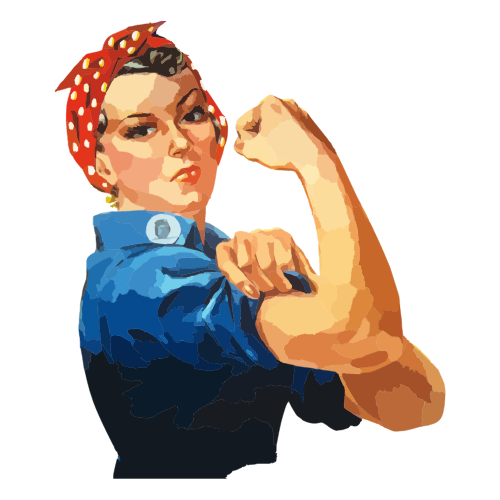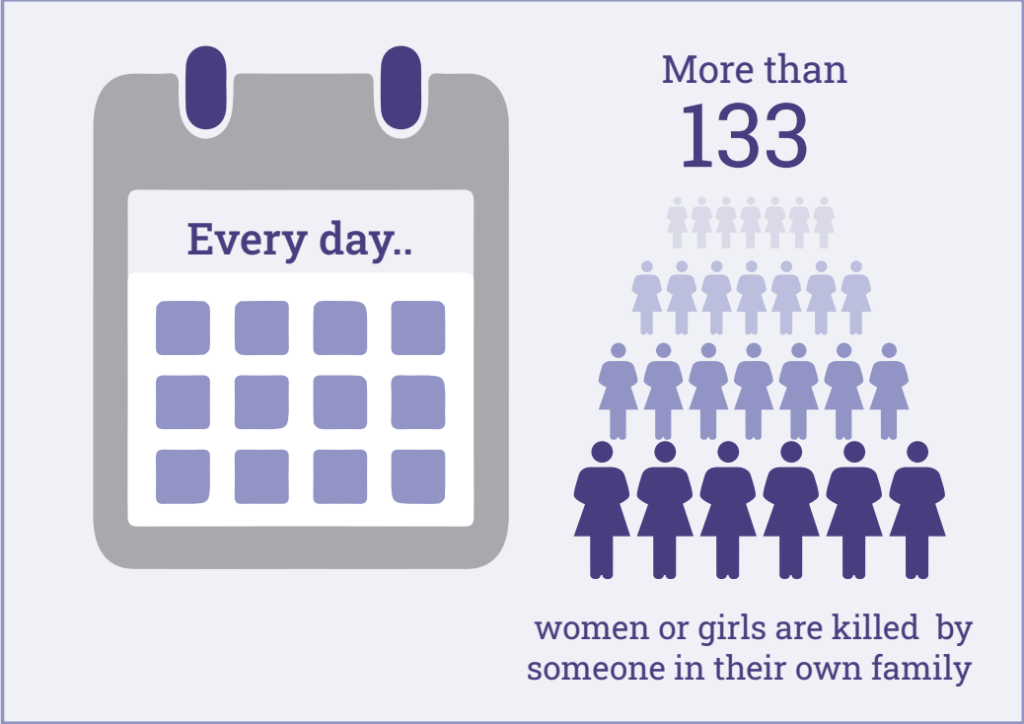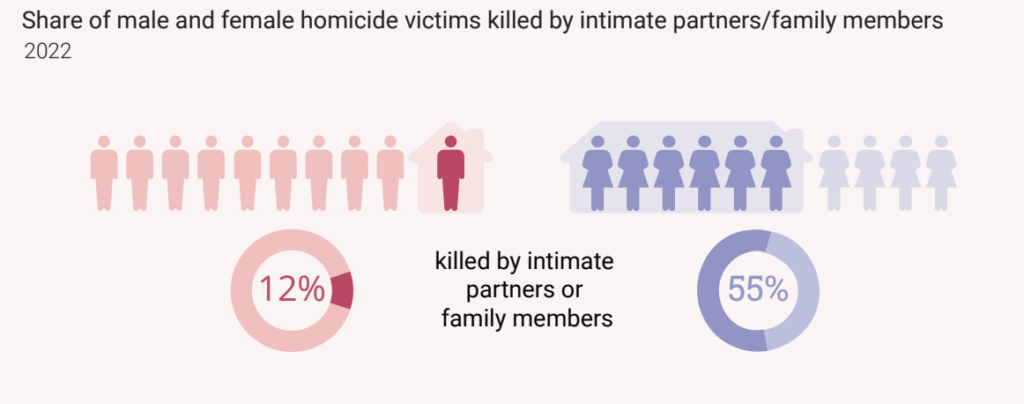The Call for a Greta Thunberg of Women’s Rights – Urgency and Action Needed
As the world marks International Women’s Day, this years campaign theme of IWD is #inspireinclusion, which leads us to include and inspire especially young women to take action – a call for a Greta Thunberg of Women’s Rights.
Before we dive into our 3 major topics, let’s take a look of the landscape of women’s rights:
- Gender-based discrimination: Women often encounter discrimination based on their gender, manifesting in unequal pay, limited career advancement opportunities, and biased treatment in various spheres of life.
- Violence against women: Gender-based violence, including domestic violence, femicide, sexual harassment, and trafficking, remains pervasive, with severe physical, emotional, and psychological consequences.
- Limited access to education: Barriers such as poverty, cultural norms, and discriminatory practices hinder women’s access to quality education, particularly in developing countries.
- Unequal representation in leadership: Women are underrepresented in leadership positions across sectors, perpetuating gender inequality and hampering efforts for effective women’s rights advocacy.
- Healthcare disparities: Women face disparities in access to healthcare services, including reproductive healthcare, maternal care, and mental health support, impacting their well-being.
- Unpaid care and domestic work: Women disproportionately bear the burden of unpaid care and domestic work, limiting their economic empowerment and reinforcing traditional gender roles.
- Gender stereotypes and social norms: Harmful stereotypes constrain women’s opportunities and freedoms, affecting their self-esteem, aspirations, and ability to assert their rights.
- Lack of access to economic opportunities: Barriers to formal employment, entrepreneurship, and financial resources impede women’s economic independence and security.
- Reproductive rights and maternal health: Restrictions on access to contraception, safe abortion, and comprehensive sexual education violate women’s bodily autonomy and reproductive rights.
- Underrepresentation in STEM fields: Women’s underrepresentation in STEM fields limits their opportunities for career advancement and innovation, perpetuating the gender gap.
These are just some of the many challenges women face. Now, let’s delve deeper into three critical issues: gender equality, reproductive rights, and the battle against violence targeting women.
The journey towards gender equality has been long and arduous, marked by triumphs and setbacks. Women across generations have fought tirelessly to challenge societal norms and demand equal rights and opportunities. Yet, despite these efforts, systemic barriers persist, hindering women’s full participation in social, economic, and political spheres.
Global Gender Pay Gap and unequal representation
According to the World Economic Forum’s Global Gender Gap Report of 2022, the gender parity gap remains vast, with no country achieving full equality. Shockingly, according to UN projection (2022) it will take 257 years to close the global gender pay gap based on current trends—a sobering reality that demands urgent action.
In the realm of political representation, women continue to be vastly underrepresented. Only 24% of parliamentary seats worldwide are held by women, reflecting the entrenched gender disparities in leadership positions. Without adequate representation, women’s voices are often marginalised, and their needs overlooked in policymaking processes.
Reproductive rights = Human Rights
Reproductive rights are another battleground for women’s rights, with access to contraception and abortion services facing relentless opposition. The legalisation of abortion in the 1960s and 1970s marked a significant milestone in the fight for reproductive rights.
The notion that a government has the right to dictate what a woman can or cannot do with her own body is not just wrong—it’s an affront to fundamental human rights and autonomy.
At the core of reproductive rights is the principle of autonomy – the right of every woman to make decisions about her body, sexuality, and reproductive health without coercion or discrimination.
Imagine if the tables were turned, and it was men whose reproductive choices were subject to government intervention. What if men were required to obtain permission from lawmakers before undergoing vasectomies or seeking treatment for erectile dysfunction? The outrage would be immediate and widespread. Yet, when it comes to women’s bodies, such infringements are often accepted as legitimate exercises of state power and even more absurd used for election campaigns like lately seen in the US (again!).
Additionally, the erosion of reproductive rights is often intertwined with broader attacks on women’s rights, including attempts to roll back protections against gender-based violence and discrimination.
Ultimately, the fight for reproductive rights is a fight for gender equality. It’s about ensuring that women have the same rights and opportunities as men, including the right to control their own bodies and destinies.
Violence and Femicide
Violence against women, including femicide, remains a pervasive and urgent issue. According to UNODC every day over 133 women are killed (femicide). However, it’s important to recognise that this number likely represents only a fraction of the actual cases. Countless women around the world face the threat of physical, sexual, and emotional violence, perpetuated by systemic inequalities and patriarchal structures. Yet, there is a lack of concerted global action to address this epidemic of gender-based violence.
We need a Greta Thunberg of Women’s Rights
We’re in need of a Women’s Rights advocate similar to Greta Thunberg. We’ve seen how she’s rallied people worldwide with her passion for environmental causes. But when it comes to women’s rights, we’re still missing someone like her.
Despite some progress, we need someone as bold and dedicated as Greta to speak up for gender equality, reproductive rights, and an end to violence against women. It’s time to make sure these issues get the attention they deserve on the global stage and speed up our progress.
Until we find our own Greta Thunberg for women’s rights, it’s up to all of us to raise our voices for women and marginalized communities. Let’s encourage young girls and inspire them to become the next generation of advocates.
Let’s also hold governments, institutions, organizations, and companies accountable for promoting policies that advance gender equality and reproductive rights, and for making our societies safer and more inclusive for everyone.
As we celebrate International Women’s Day, let’s recommit to the fight for gender equality, reproductive justice, and an end to violence against women. The time to act is now!







 English
English Deutsch
Deutsch Українська
Українська Polski
Polski עִבְרִית
עִבְרִית Türkçe
Türkçe العربية
العربية Français
Français Italiano
Italiano Español
Español 繁體中文
繁體中文 简体中文
简体中文 Shqip
Shqip Bosanski
Bosanski Български
Български Hrvatski
Hrvatski Čeština
Čeština Nederlands
Nederlands Suomi
Suomi Српски језик
Српски језик Ελληνικά
Ελληνικά Русский
Русский Română
Română Português
Português فارسی
فارسی ਪੰਜਾਬੀ
ਪੰਜਾਬੀ Svenska
Svenska Afrikaans
Afrikaans አማርኛ
አማርኛ Հայերեն
Հայերեն Azərbaycan dili
Azərbaycan dili Euskara
Euskara Беларуская мова
Беларуская мова বাংলা
বাংলা Català
Català Cebuano
Cebuano Chichewa
Chichewa Corsu
Corsu Dansk
Dansk Esperanto
Esperanto Eesti
Eesti Filipino
Filipino Frysk
Frysk Galego
Galego ქართული
ქართული ગુજરાતી
ગુજરાતી Kreyol ayisyen
Kreyol ayisyen Harshen Hausa
Harshen Hausa Ōlelo Hawaiʻi
Ōlelo Hawaiʻi हिन्दी
हिन्दी Hmong
Hmong Magyar
Magyar Íslenska
Íslenska Igbo
Igbo Bahasa Indonesia
Bahasa Indonesia Gaeilge
Gaeilge 日本語
日本語 Basa Jawa
Basa Jawa ಕನ್ನಡ
ಕನ್ನಡ Қазақ тілі
Қазақ тілі ភាសាខ្មែរ
ភាសាខ្មែរ 한국어
한국어 كوردی
كوردی Кыргызча
Кыргызча ພາສາລາວ
ພາສາລາວ Latin
Latin Latviešu valoda
Latviešu valoda Lietuvių kalba
Lietuvių kalba Lëtzebuergesch
Lëtzebuergesch Македонски јазик
Македонски јазик Malagasy
Malagasy Bahasa Melayu
Bahasa Melayu മലയാളം
മലയാളം Maltese
Maltese Te Reo Māori
Te Reo Māori मराठी
मराठी Монгол
Монгол ဗမာစာ
ဗမာစာ नेपाली
नेपाली Norsk bokmål
Norsk bokmål پښتو
پښتو Samoan
Samoan Gàidhlig
Gàidhlig Sesotho
Sesotho Shona
Shona سنڌي
سنڌي සිංහල
සිංහල Slovenčina
Slovenčina Slovenščina
Slovenščina Afsoomaali
Afsoomaali Basa Sunda
Basa Sunda Kiswahili
Kiswahili Тоҷикӣ
Тоҷикӣ தமிழ்
தமிழ் తెలుగు
తెలుగు ไทย
ไทย اردو
اردو O‘zbekcha
O‘zbekcha Tiếng Việt
Tiếng Việt Cymraeg
Cymraeg isiXhosa
isiXhosa יידיש
יידיש Yorùbá
Yorùbá Zulu
Zulu